The “Global Intelligent Governance and New
Forms of Human Development” Forum took place at Zhiyuan Building on October 19th.
As one of the sub-forums of the Tongzhou Global Development Forum (2024) hosted
by Renmin University of China (RUC), it was jointly organized by RUC’s Gaoling
School of Artificial Intelligence, the National Academy of Development and
Strategy, and the Beijing Academy of Artificial Intelligence. The forum aimed
to discuss the new challenges and opportunities that AI technology presents for
human development. Experts from academia and industry, both at home and abroad,
gathered to envision a smart future, hoping to promote continuous progress in global
intelligent governance and the prosperity of human society.

RUC President Lin Shangli and Executive
Vice President Zhu Xinkai, along with Tan Hualin, Deputy Director of the
Publicity and Culture Department of the China Association for Science and
Technology, attended the forum and delivered speeches. More than 100 experts
were present, including Qiu Baoxing, academician of the International Eurasian
Academy of Sciences, Ye Yinyu, tenured professor at Stanford University and
first Chinese recipient of the John von Neumann Theory Prize, Xue Lan, Dean of
Schwarzman College at Tsinghua University, and other distinguished scholars.
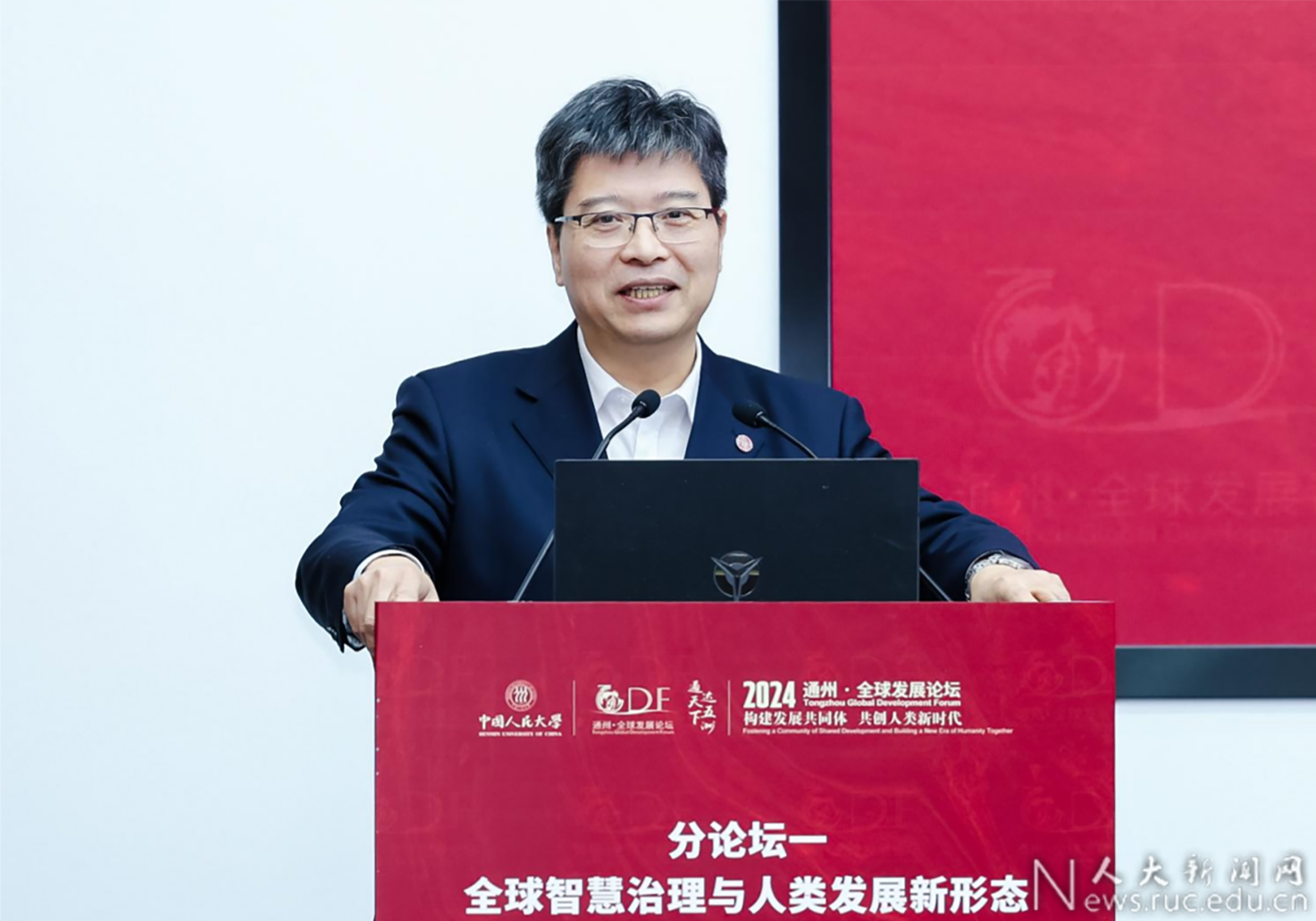
Lin Shangli emphasized that AI is
transforming the course of human development and global development patterns.
Big data and AI have become crucial engines for advancing new quality
productive forces and strengthening national competitiveness. The integration
of big data, AI, and the humanities and social sciences offers boundless
potential. Renmin University of China has achieved outstanding and ongoing progress
in the interdisciplinary field of “AI + social sciences”. Looking ahead, the
university will leverage its academic strengths, seize opportunities brought by
technological and industrial revolutions, and foster interdisciplinary
research. It aims to promote integrated academic-industry and science-education
collaboration, cultivate innovative models of interdisciplinary development,
create new platforms for nurturing talent and new forms of advisory services, all
in support of national strategic needs and the advancement of global intelligent
governance.

Zhu Xinkai stated that, to enhance the
integration of AI with social governance and improve public services, RUC has
vigorously developed the School of Artificial Intelligence and established the School
of Intelligent Governance to cultivate interdisciplinary talents in AI, digital
economy, financial technology, and intelligent governance. Intelligent
governance should not only incorporate the “speed of AI” but also the “warmth
of the humanities.” RUC is committed to building an inclusive, equitable, and
diverse framework for intelligent governance in collaboration with all sectors,
promoting AI governance and fostering the flourishing of human civilization.
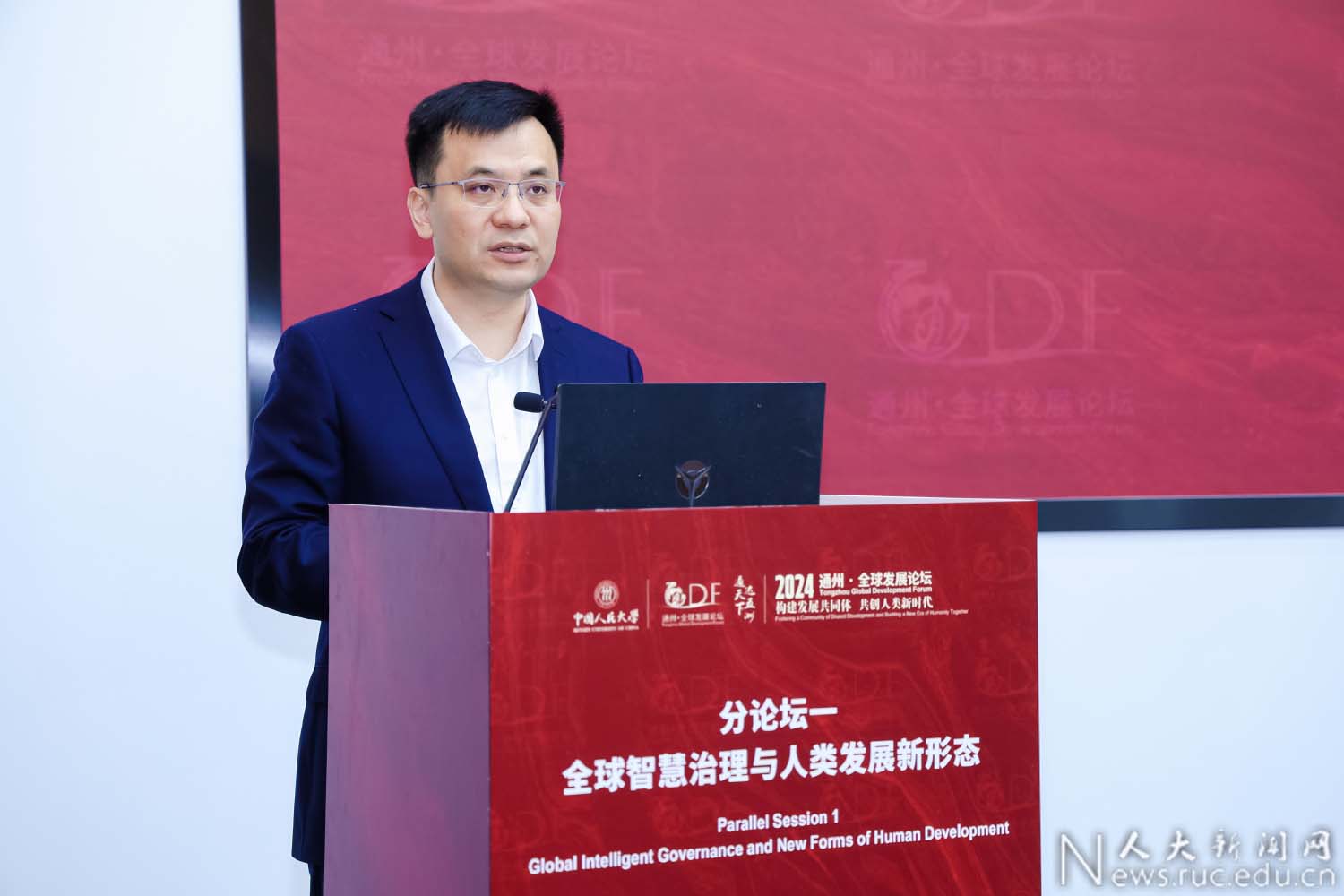
Tan Hualin emphasized that intelligent governance
is crucial to addressing global challenges and facilitating human progress. The
application of AI and other digital technologies in governance must adhere to
three principles: goal orientation in advancing national strategies, problem
orientation in driving interdisciplinary innovation, and outcome orientation in
establishing industry-academia partnerships. Standing from the perspective of
building a community with a shared future for humankind, these approaches unite
various stakeholders to promote modernization in national governance.
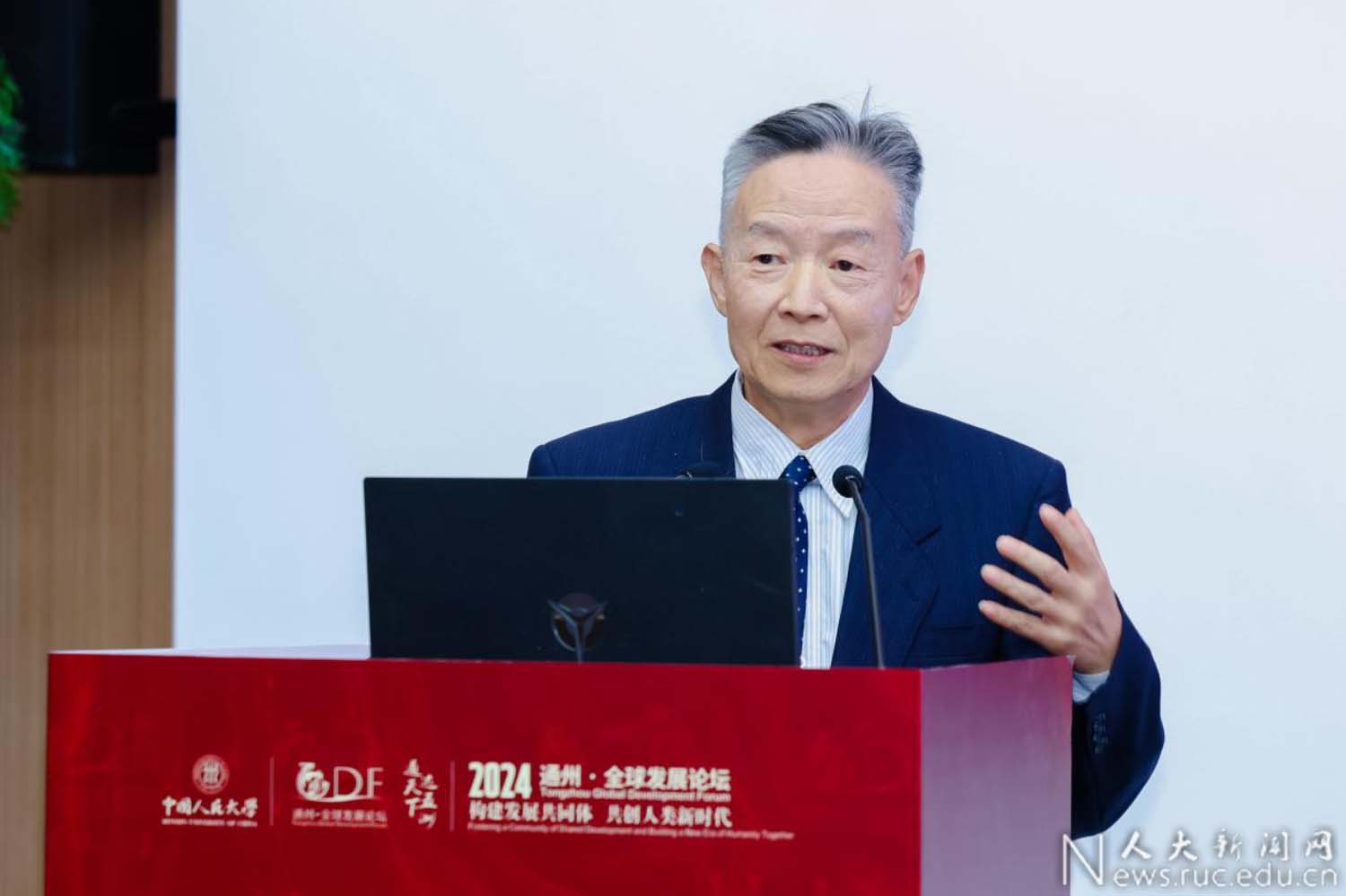
Qiu Baoxing delivered a keynote speech on “How
AI Impacts Society and Human Evolution.” He highlighted that generative AI is going
through transformative progress, with both general and specialized AI
interacting in ways that could spark a new round of knowledge revolution. The
rapid industrialization of GAI is impacting all aspects of social life,
including intelligent city governance.

Liang Zheng, Vice Dean of the Institute for AI International Governance at Tsinghua University, presented a keynote speech on “Turning Points and Pathways: Building a New Vision of Civilization in the Intelligent Era”. He noted that AI will inevitably have a profound impact on individuals, society, and civilization as a whole. With the acceleration of AI development, countries need to create governance frameworks that ensure the healthy development of AI technology.
During the forum, RUC and the Beijing
Academy of Artificial Intelligence joined the “Beijing International AI Talent
Innovation Alliance” as its first members.
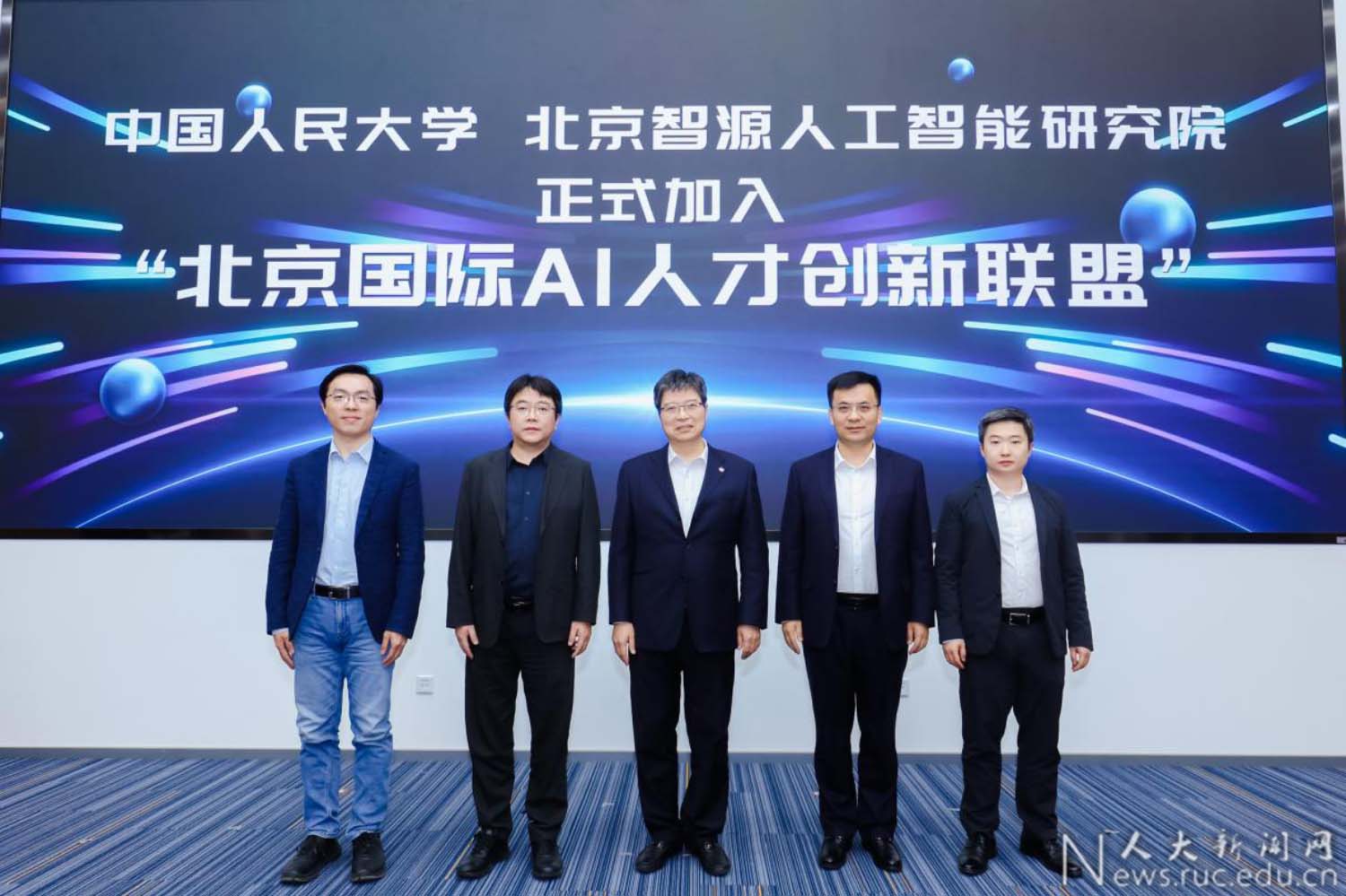
RUC also released the achievements of its
independently developed Yulan model, which includes Yulan 3.0, the FlashRAG
toolkit, Awaker 2.5 multimodal model, a 3D model generation algorithm for
physical environments, a scarce resource allocation policy simulator, and a neighborhood
socioeconomic development forecast algorithm.
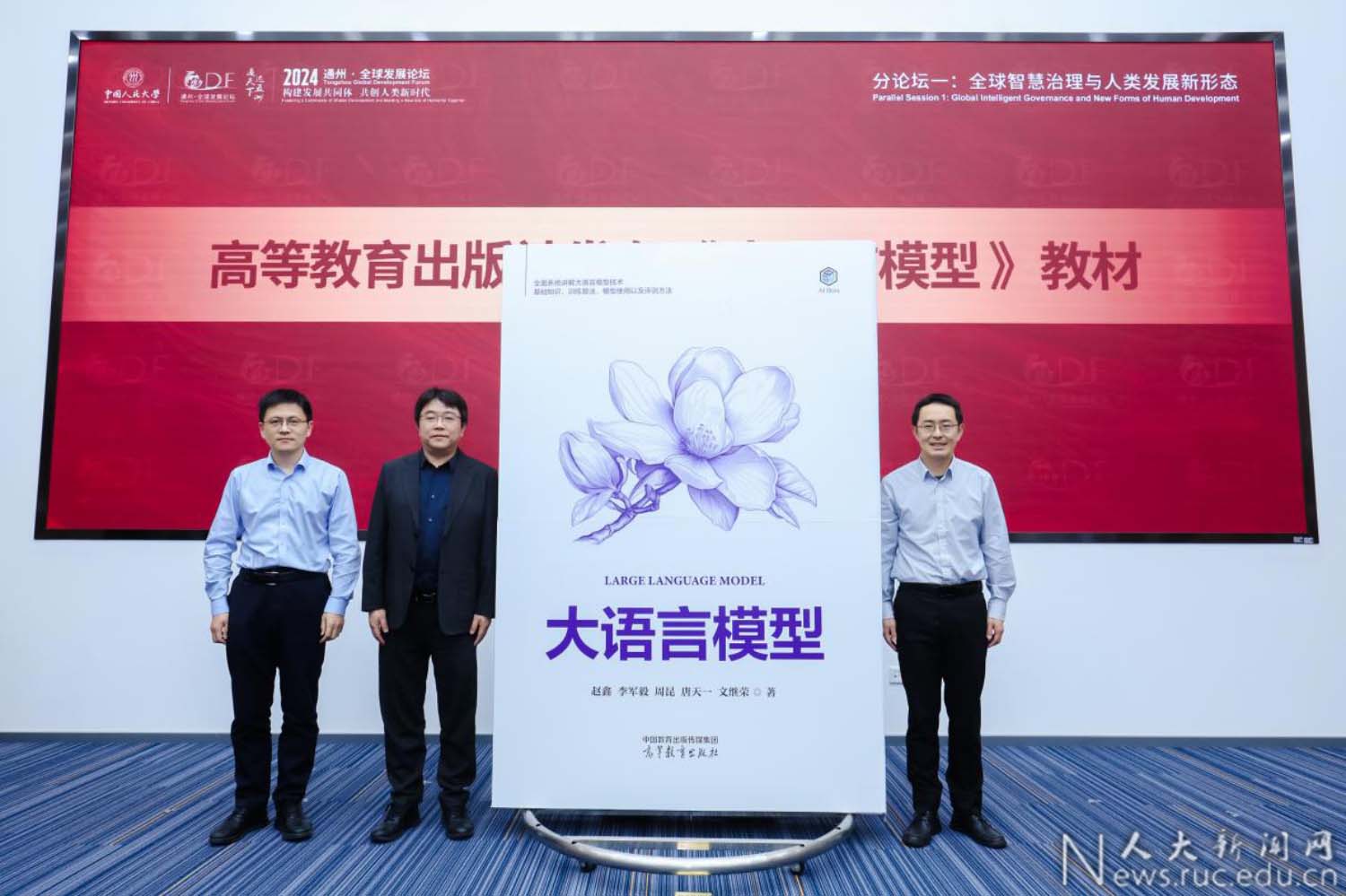
Additionally, Professor Zhao Xin and Wen
Jirong from the Gaoling School of Artificial Intelligence introduced the
textbook Large Language Models, published by Higher Education Press,
which aims to support the popularization of large model technology and empower
national AI development.
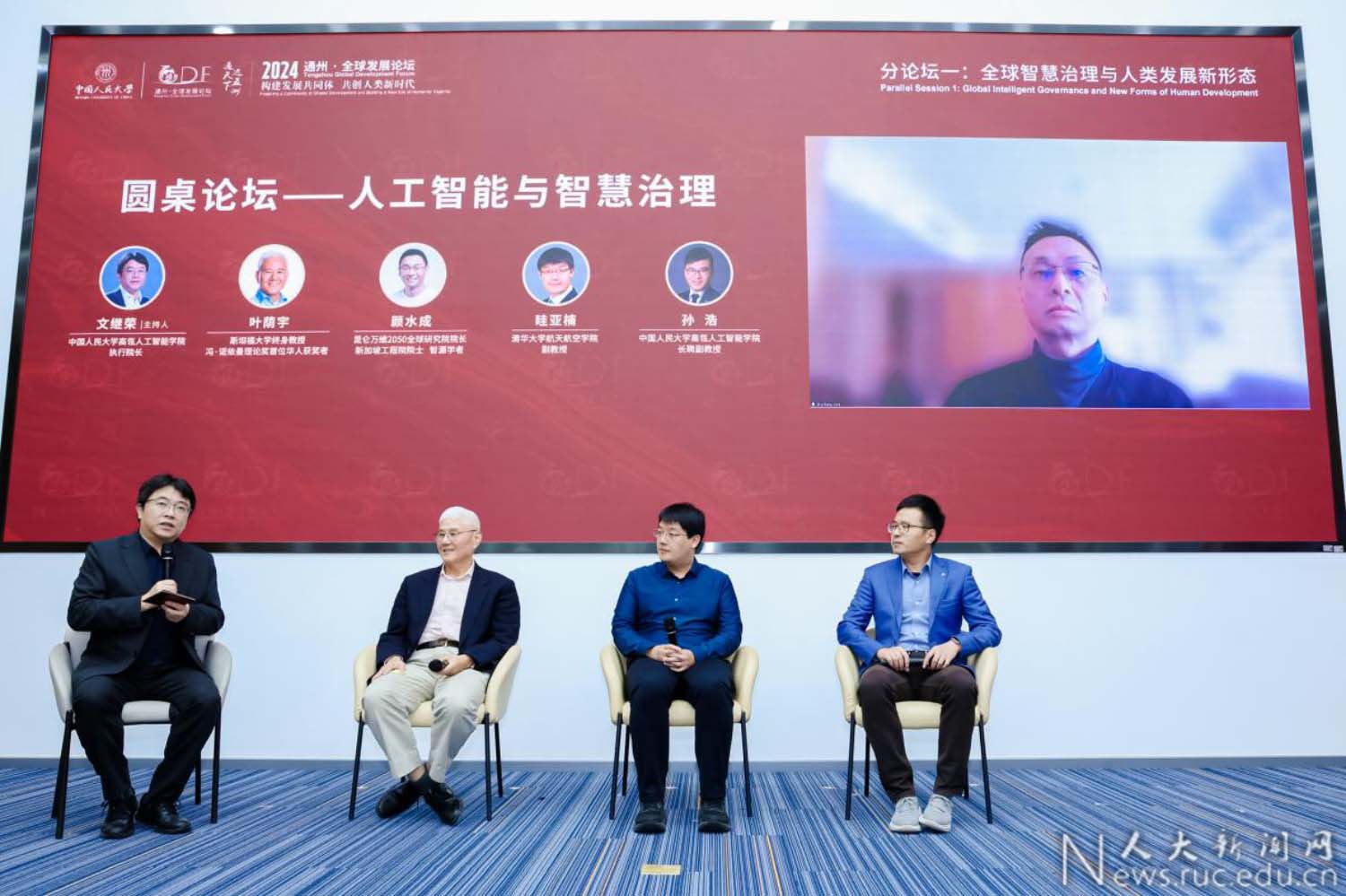
The first roundtable discussion, focused on
“AI and Intelligent Governance”, explored topics such as “How AI Empowers
Global Intelligent Governance and Human Development” and “Insights from the
2024 Nobel Prize on New Research Paradigms in AI”.

The theme of the second roundtable was “AI
Safety and Regulation”. Experts discussed the issue of “AI safety and
governance” from various angles, including data security, technology,
institutional and legal regulation, and international collaboration. They
offered numerous recommendations to address the complex challenges AI poses to
security and regulation.


